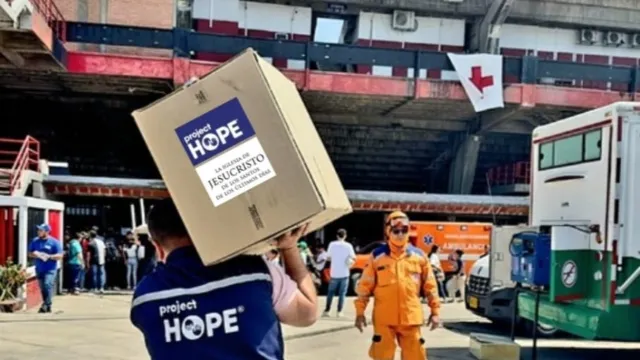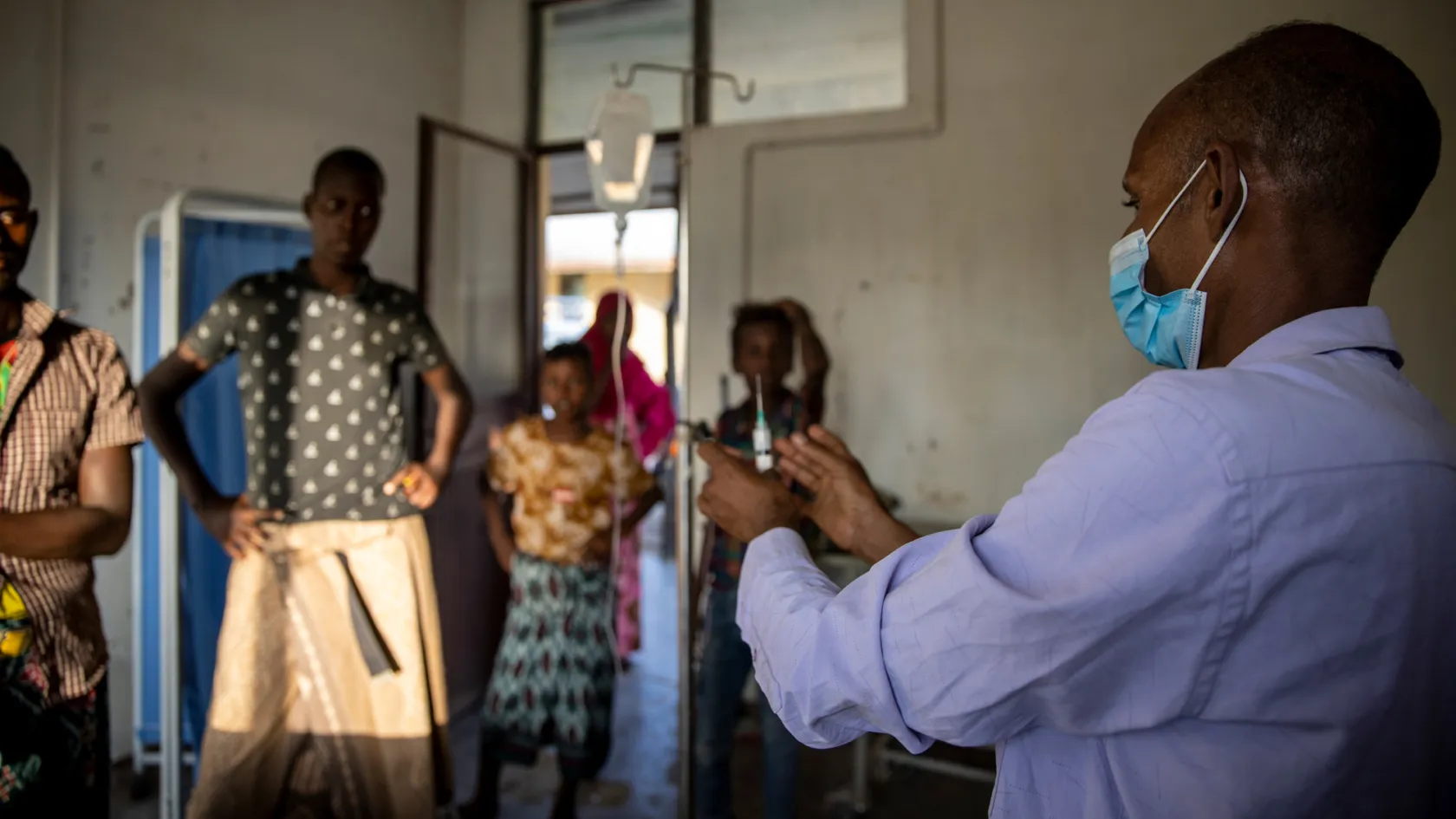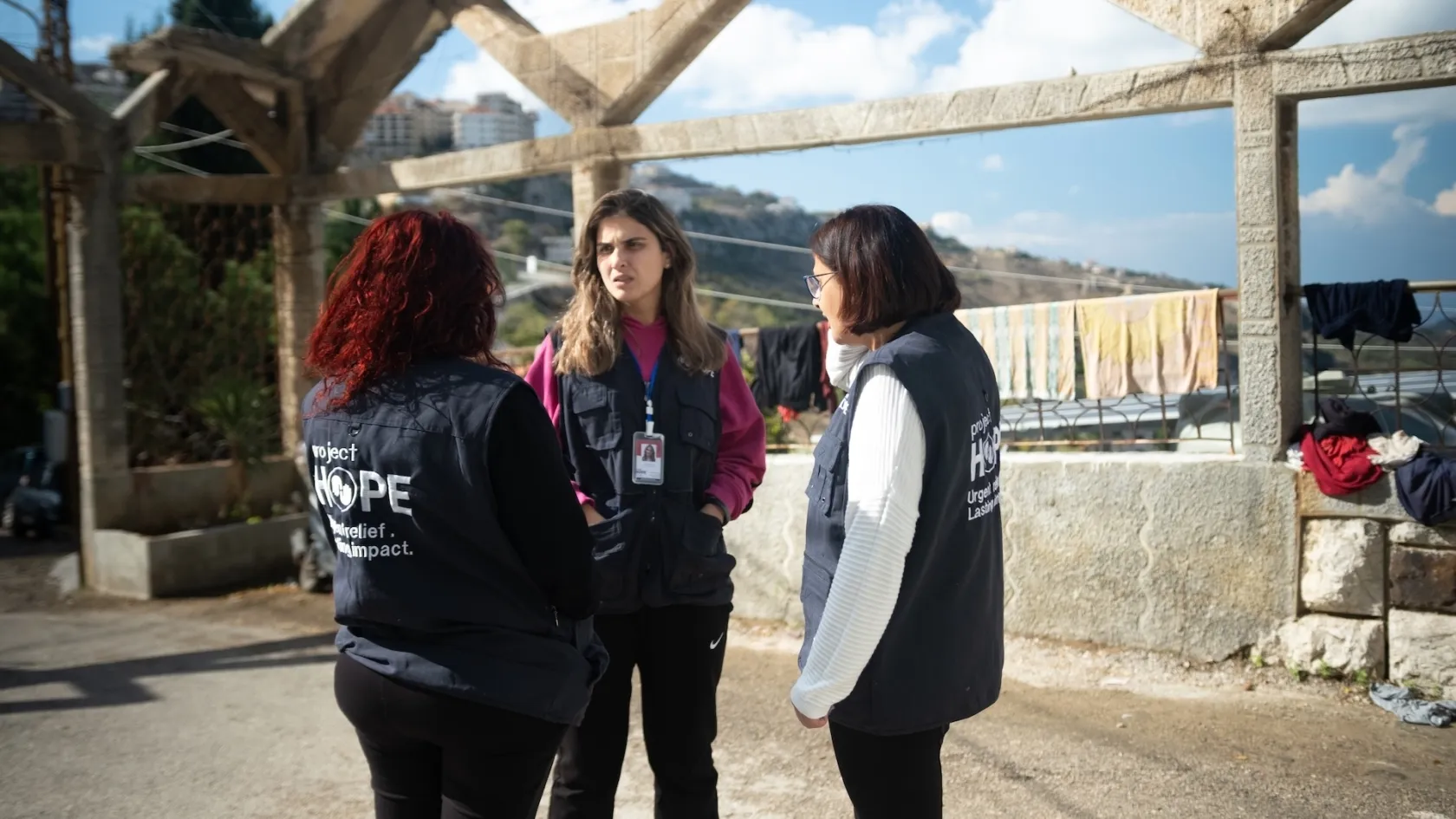Colombia: Violence in Catatumbo Leads to Health and Displacement Crisis

Violence between armed groups in Colombia’s Catatumbo region has displaced more than 32,000 people and killed at least 80. In Cúcuta, hundreds have sought refuge in the General Stadium of Santander, a soccer stadium where there is limited access to food, clean water, proper hygiene, and adequate shelter. The region is also grappling with outbreaks of dengue fever, while the ongoing conflict has created an urgent need for mental health and psychosocial support services.
In Cúcuta, Project HOPE is working with ESE Imsalud, a health care institution, to distribute hygiene kits for children and adults and urgently needed items for pregnant and postpartum women at General Stadium of Santander. Project HOPE has also donated medication to support Imsalud’s mobile medical units in Cúcuta that are providing primary health care including general consultations, mental health support, and vaccinations. This week, Project HOPE’s team is conducting an in-depth needs assessment to identify urgent health needs.
Adib Fletcher, Project HOPE’s Senior Regional Director for Latin America and the Caribbean said:
“What’s happening in Colombia is heartbreaking and horrifying. Our team in Norte de Santander has witnessed an influx of displaced families arriving by bus, motorcycle, truck and by foot, including mothers traveling with multiple young children. People have been forced to leave everything in fear for their lives. Families have fled with just one or two bags, and they have no certainty on when they can return to their homes. As people find shelter in overcrowded areas, we are concerned about disease outbreaks and an increased strain on the local health system. We are working as fast as possible to assess the health needs of displaced communities. Our hope is always that Colombia finds a long-term solution for peace, and that we will soon see an end to the violence.”
Project HOPE first worked in Colombia from 1995 to 1998 to establish a regional emergency medical system in coordination with local government, health facilities, and university partners. Since 2018, our team has worked to support the health needs of migrants, refugees, and host communities in high-transit areas, with a focus on areas along the Venezuela-Colombia border and the Norte de Santander department. Since 2019, Project HOPE has worked in Cúcuta and Villa del Rosario to address the reproductive and maternal health needs of migrant women and girls, working with health facilities and partners to establish a continuum of care for women and girls seeking urgently needed services. In 2024, Project HOPE expanded its support for migrants, refugees, and host communities in Colombia by launching a comprehensive primary health; water, sanitation, and hygiene (WASH); and protection program in Cúcuta, Villa del Rosario, and Convención.
###
For media inquiries, contact media@projecthope.org or Armand Viscarri at +1 281-889-8594



